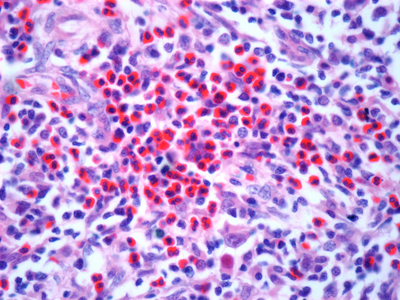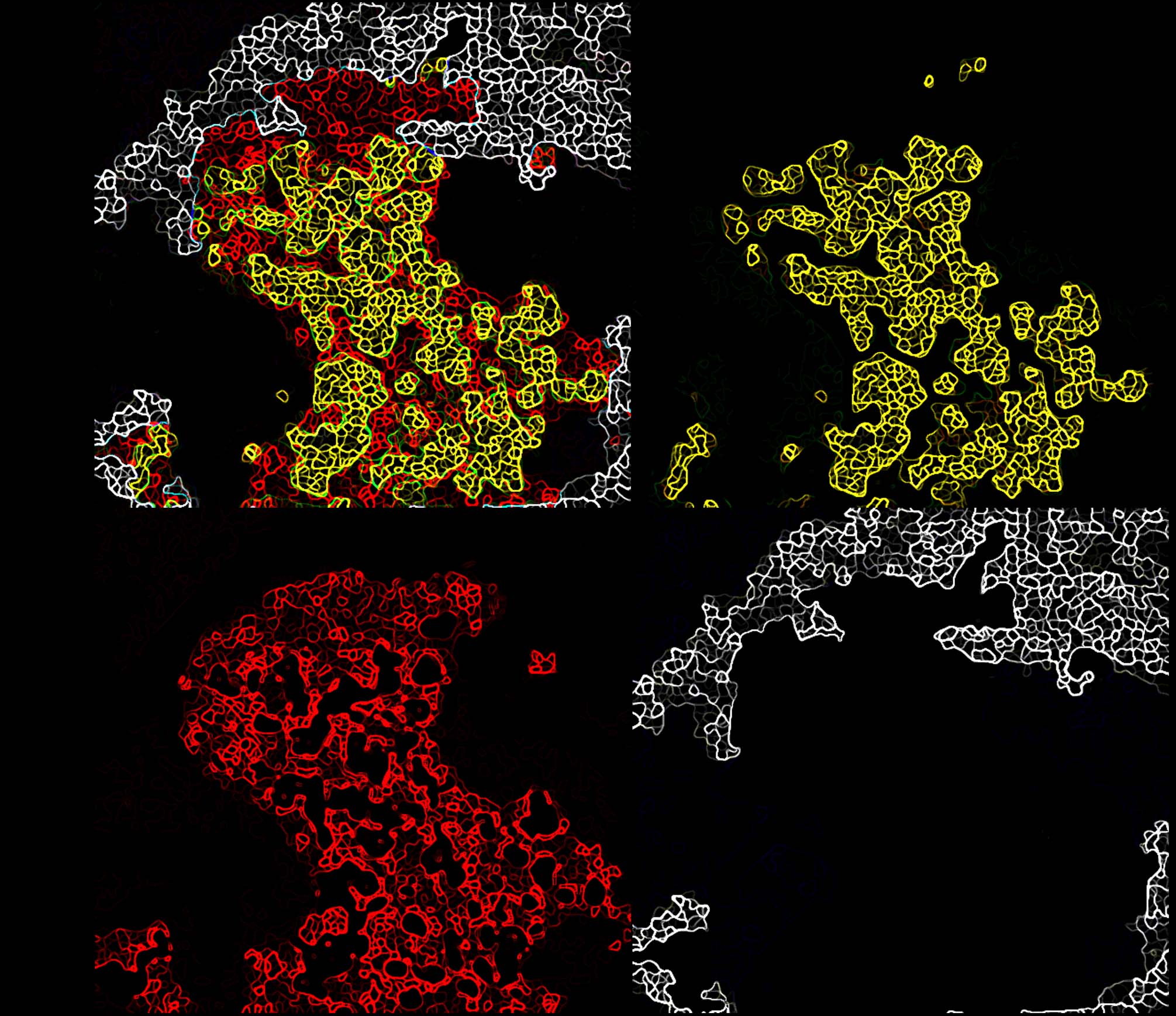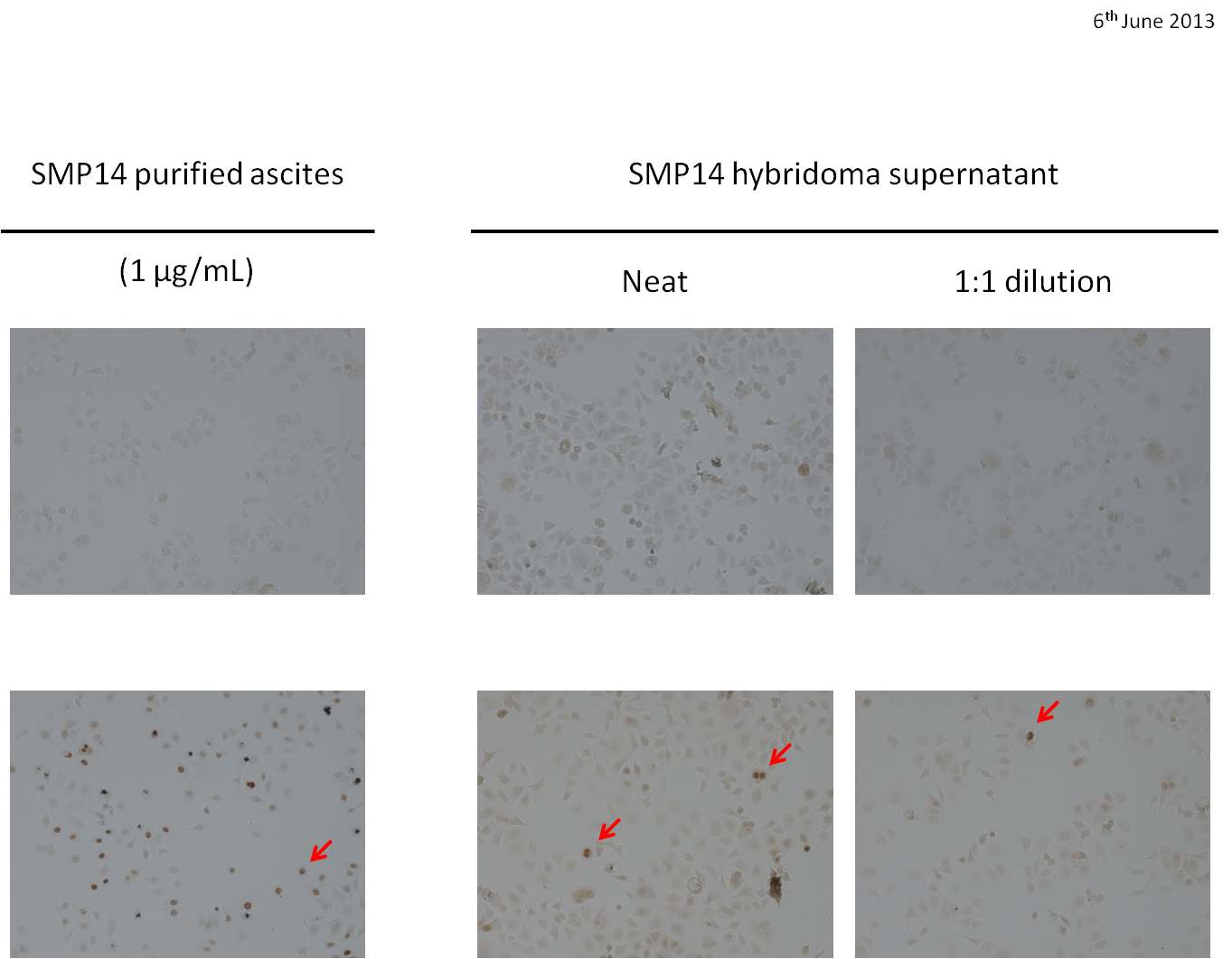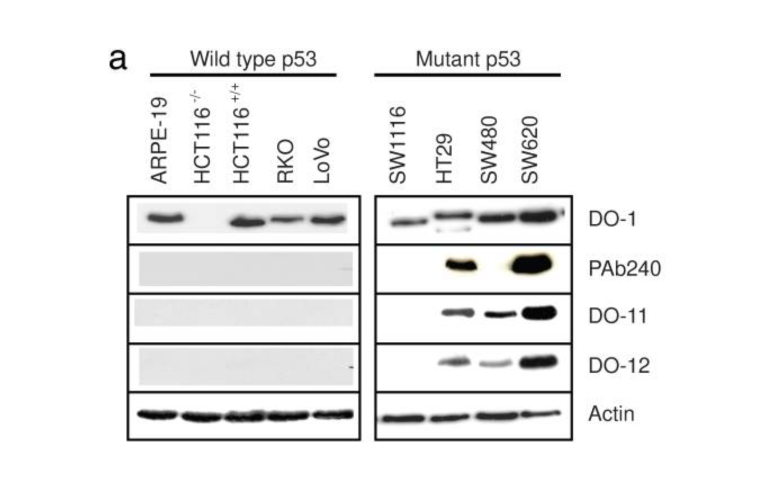CancerTools.org is committed to empower cancer researchers and the advancement of novel discoveries in tumour immunology by providing relevant research tools, including antibodies targeting tumour antigens. Image: Human breast cancer stained with an antibody to Pax-2. Photo credit: Jason Carroll at the CRI. Tumour antigens are proteins, glycoproteins, glycolipids, or carbohydrates found in tumour cells and recognised by cellular or humoral effectors of the immune system. Tumour antigens are not only useful in identifying cancer cells, they also can be leveraged as targets in cancer therapy. With the ever-increasing potential of tumour antigens in immunotherapy approaches, including cell therapy and cancer vaccines, their discovery and research has become crucial to support successful immunotherapy. Tumour antigens can be classified into tumour-specific antigens and tumour-associated antigens, which in turn can be sub-categorised, based on antigen origin (1,2). Tumour-specific antigens are restricted to tumours and are not found in healthy cells as they are the result of malignant mutations or the expression of viral elements (1,2). They include: > Neoantigens, produced as a direct consequence of genetic alteration caused by tumour DNA mutations and are […]






